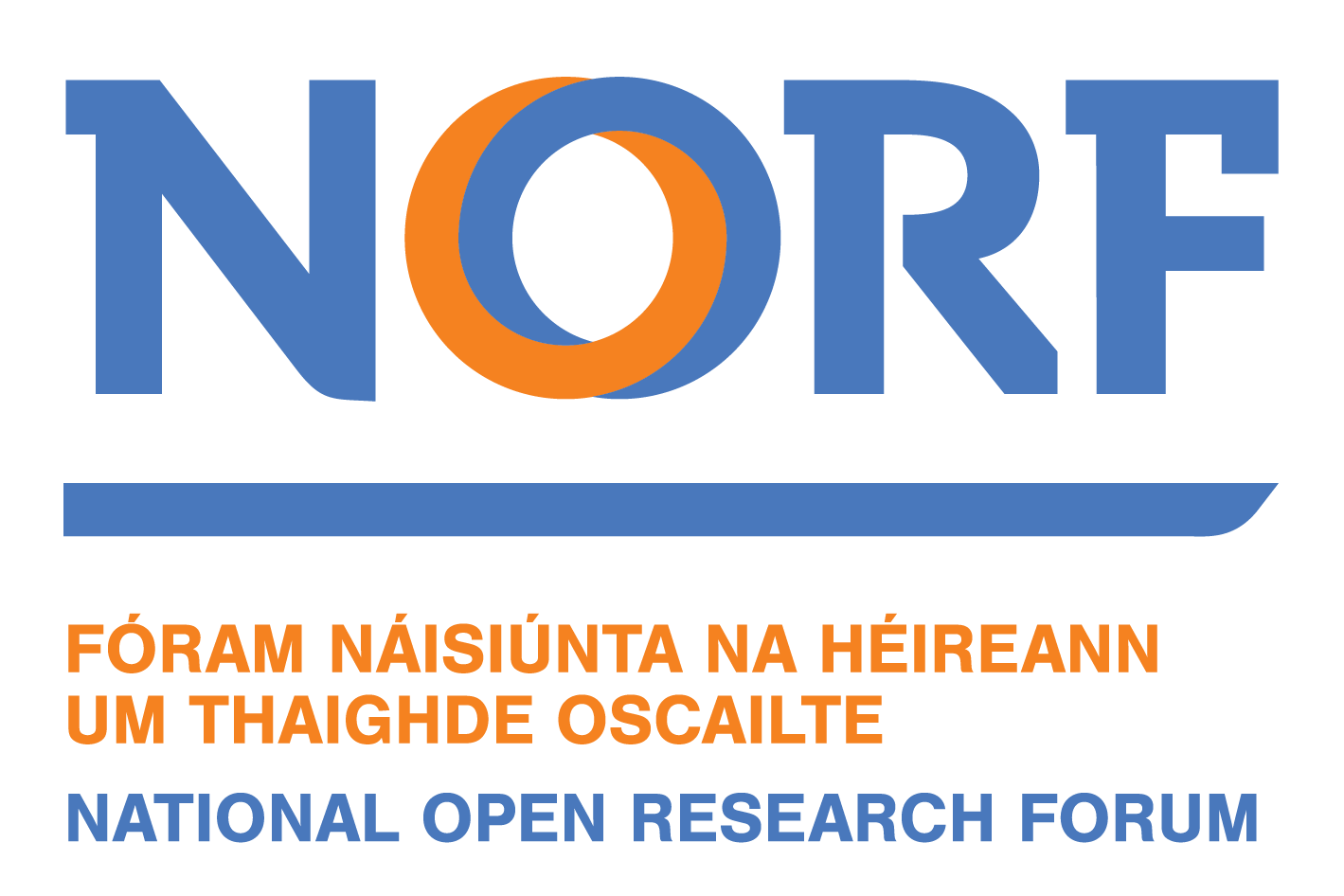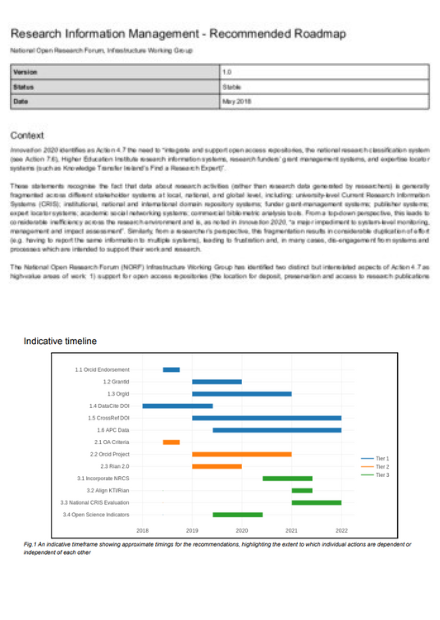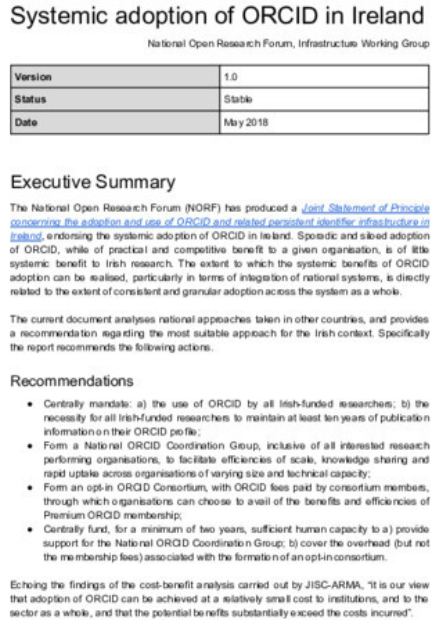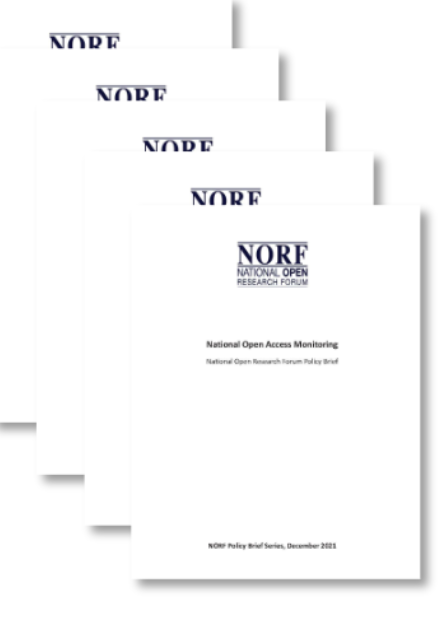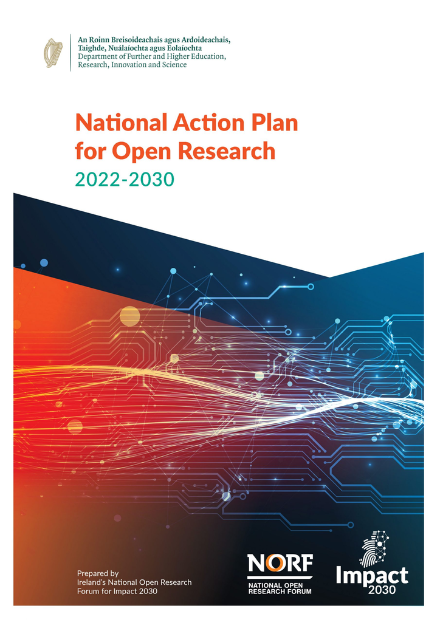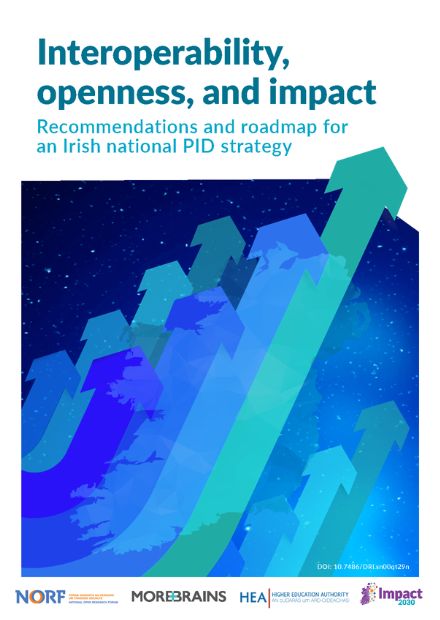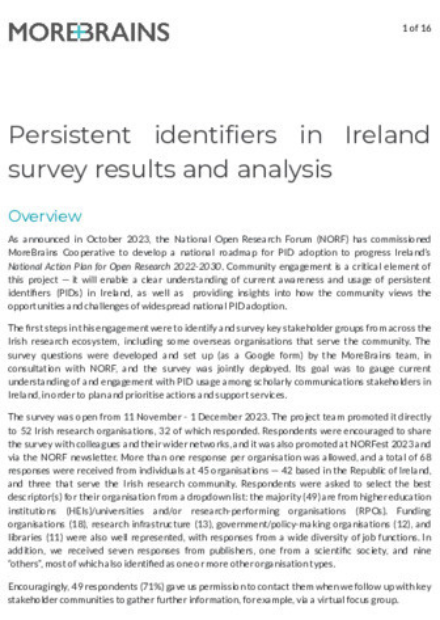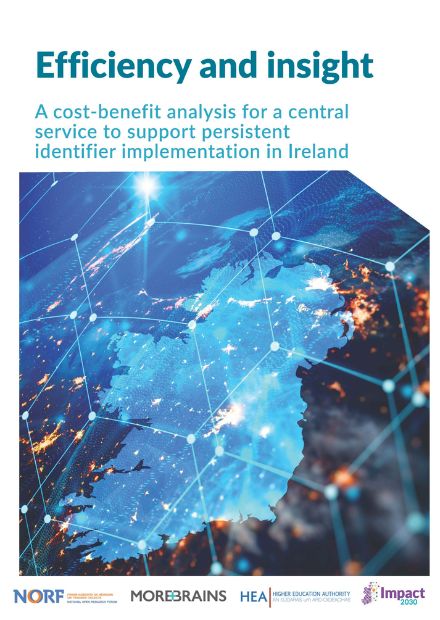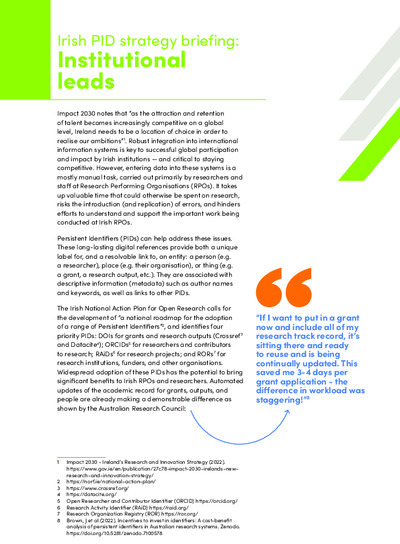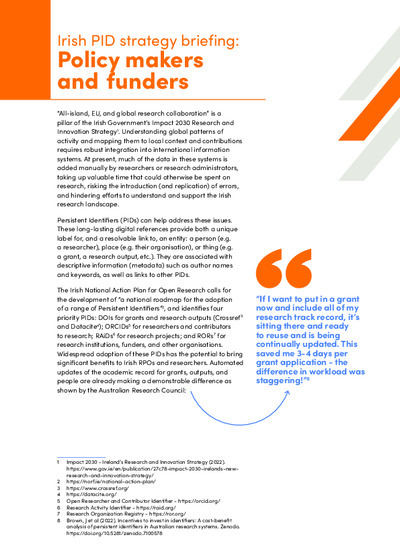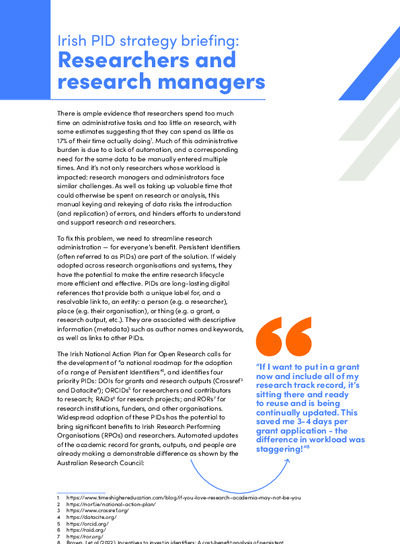NORF Outputs
Research Information Management Recommended Roadmap
(May 2018)
This paper on a recommended roadmap for research information management is an output of NORF’s Infrastructure Working Group in the first phase of NORF (2016-2019).
Systemic Adoption of ORCID in Ireland
(May 2018)
This paper on the systemic adoption of ORCID in Ireland is an output of NORF’s Infrastructure Working Group in the first phase of NORF (2016-2019).
National Framework on the Transition to an Open Research Environment
(July 2019)
The National Framework on the Transition to an Open Research Environment was developed by NORF as the first step in a process to create a National Action Plan for the transition to an open research environment in Ireland.
National Open Research Landscape Report
(December 2021)
The National Framework consists of 28 objectives across five strategic areas: open access to research publications; enabling FAIR (Findable, Accessible, Interoperable, Reusable) research data; infrastructures for access to and preservation of research; skills and competencies; and incentives and rewards. This report summarises progress and challenges in each of these areas. As such, it provides a snapshot of the state of the support structures for open research in Ireland in 2021.
Throughout 2021, 14 policy briefs were developed by members of NORF.
National Action Plan for Open Research 2022-2030
(November 2022)
Ireland’s National Action Plan for Open Research outlines a vision, goals and coordinated actions for Ireland’s transition towards open research. The plan was prepared by NORF and supports national strategic priorities for research and innovation under Impact 2030: Ireland’s Research and Innovation Strategy.
Impact, Openness, Interoperability: Recommendations and a Roadmap for an Irish National PID Strategy
(October 2024)
The National PID Strategy and Roadmap presents 15 key recommendations and detailed actions aimed at establishing a more efficient, transparent, and open research ecosystem in Ireland, spanning the period until 2030. It was prepared by NORF and the NORF PID Task Force, together with scholarly communications consultants, MoreBrains Cooperative. The objective is to enable seamless information flow between systems and organisations, reduce bureaucratic burdens, and enhance research transparency and integrity. PIDs underpin this vision as they act as critical bridges between entities. The project to deliver this roadmap was initiated in response to the National Action Plan for Open Research.
Persistent identifiers in Ireland survey results and analysis
(September 2024)
As part of the project to deliver Ireland’s National Persistent Identifier Strategy and Roadmap, a stakeholder survey was carried out to enable a clear understanding of awareness and usage of PIDs in Ireland, as well as providing insights into how the community views the opportunities and challenges of widespread national PID adoption. The survey results and analysis together with a complete copy of the survey text are available in this report.
As part of the project to deliver Ireland’s National Persistent Identifier Strategy and Roadmap, a cost-benefit analysis of PID adoption in Ireland was conducted. This analysis shows that the cost of investing in a central support service, and of implementing PIDs in 25 publicly-funded, research-performing Irish institutions, would be more than outweighed by the time and cost savings generated by metadata re-use. The estimated efficiency gain is equivalent to more than 4,000 days of staff time savings each year, or nearly €1.8M in staff salary and overhead.
Irish PID strategy briefing: Institutional Leads
(July 2024)
Briefing document on Irish PID Strategy project recommendations, aimed at institutional senior management.
Irish PID strategy briefing: Policy Makers
(July 2024)
Briefing document on Irish PID Strategy project recommendations, aimed at policy makers.
Irish PID strategy briefing: Researchers and research managers
(July 2024)
Briefing document on Irish PID Strategy project recommendations, aimed at researchers and research managers.
